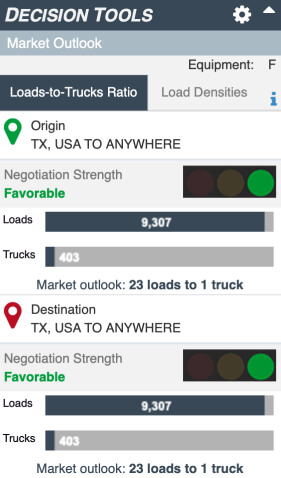13 Benefits of Using a LTL Freight Broker

What are you waiting for?
Make more money starting now.
Less than truckload freight (LTL) helps carriers make more money by combining shipments from multiple stops in one area. But finding these loads efficiently is crucial for carriers to be profitable. This ability to bridge both shippers’ and carriers’ needs is one of the reasons the service they provide is so valuable.
LTL freight brokers deal with many carriers to connect shippers and drivers who can handle their hauls. They also offer valuable insight that allows them to streamline the processes and keep everyone happy and busy.
Working with an LTL freight broker can help freight carriers in many ways. These brokers make it easier to handle more loads, improve relationships with shippers, and streamline operations. In this article, we’ll explore these benefits to show why teaming up with an LTL freight broker is a smart move for carriers looking to succeed in today’s competitive market.
What is an LTL freight broker?
LTL freight brokers match shipping companies that need to move goods but don’t have a full truckload with drivers that have the right amount of space, travel the right lanes or routes, and have the time to handle LTL shipments.
Typically, LTL freight brokers have good connections with both shippers and LTL carriers. They often have an online system for shippers that simplifies freight shipping requests and processes. They also have a wide network of carriers who can help accommodate various LTL shipment requests quickly and reliably.
13 benefits of using an LTL freight brokerage
The systems and relationships that LTL freight brokers develop benefit both carriers and shippers.
Here are some of the biggest reasons carriers and shippers use a broker for LTL freight shipping:
- Access to volume discounts. LTL freight brokers rely on relationship building and building a vast network. Because of this, they can negotiate discounts due to the freight volume they are helping move collectively, not just on an individual haul.
Brokers make sure trucks stay busy and on the move. This makes carriers want to work with brokers and offer lower prices. Carriers spend less time searching for shipments and more time making money. - More competitive rates. Most LTL freight brokers are incentivized with commissions. So, it’s in their best interest to negotiate the best rates for both shippers and carriers to keep doing business with them. Shippers get better rates due to the volume discounts mentioned above and the negotiating power they have.
A freight broker must also balance the rates they offer shippers so that LTL carriers can still do business with them and make a profit. Shippers and carriers can both count on better rates than they could negotiate on their own. For the broker, the better their rates, the more volume they will attract and the more money they make in the long run. - Thorough carrier and shipper vetting. The great thing about being an LTL broker is that they build strong connections with both shippers and carriers to create reliable partnerships. In order to do so, they must properly vet everyone they work with to avoid jeopardizing future deals.
When it comes to the details, these brokers understand which carriers are reliable, trustworthy, and ideal for various types of deliveries. They also know which shippers pay promptly, offer flexible terms for drivers, and will work best within a certain region or lane. - Properly classified freight. It’s common for shippers to misclassify their freight during the freight procurement process. This can create problems later on. Properly classifying freight is complex and time-consuming. It can be challenging for smaller shippers to learn and fully understand freight classifications, but an LTL freight broker can help. This also benefits carriers. Knowing the shipments they carry are classified correctly ensures they can handle them correctly.
- Organized and completed paperwork. An LTL broker does a lot more than connect shippers and carriers. Through their relationship with both parties and their knowledge of the industry, they make sure that freight is not only classified properly but that any required documentation is in order and complete. This can save the carrier time at pickups and prevent delays due to regulatory issues.
- Additional shipper needs and services. While most LTL freight brokers don’t handle cargo the way a freight consolidator would, they can still negotiate other services for shippers. These might include temporary warehouse storage, cross-docking, and refrigerated LTL shipping. This makes LTL freight brokers even more valuable partners.
- Assistance with freight claims. If there’s a problem during shipment, LTL freight brokers can assist with insurance claims. These brokers usually handle the entire shipping process, and because they have good connections and relationships, they can often speak with insurance companies and other relevant parties to speed up the process of resolving issues with the cargo.
- Expanded networking opportunities. LTL brokers bring a personal touch to what can be a very impersonal business. Working relationships are their most important assets, and they use their connections to facilitate shipping in various circumstances, find carriers who can respond quickly, and help the process go smoothly.
For example, if a shipper has an urgent order and a carrier has a truck nearby, the broker will often know if the freight is a good fit. They can reach out directly to ask questions before making a connection. This means the shipper is far more likely to get what they need promptly with a reliable carrier. The carrier can trust that the shipper is legitimate and reliable because of their relationship with the broker. - Carrier compliance monitoring. Shippers that have connected with carriers through an LTL broker may not have a system in place for monitoring carrier compliance. Even if they do, they might not want to take on the additional work of compliance monitoring. An LTL broker can manage this important task and provide essential updates to shippers.
- Find and book quality loads faster. Think of LTL brokers as specialists in finding quality loads. They can find carriers of all sizes in any region and view carrier performance ratings to ensure they find the best options for shippers.
- Consolidated billing and payment options. Billing and payment can be complex to navigate if not done right. LTL brokers provide one point of contact to simplify the process. They can combine multiple LTL shipments into one invoice, manage payment terms, and provide flexible arrangement options if needed, and dispute accessorial chargers before they get billed.
- Up-to-date industry knowledge. LTL brokers are juggling a variety of cargo weights, types, and destinations. To do so, they need to constantly be informed about regulatory and industry changes that could impact business. This includes being knowledgeable about pricing, contracts, shipping methods, and routes, all of which they can share with their network.
- Enhanced tracking and technology tools. LTL brokers use technology like Transportation Management Systems (TMS) to maximize efficiency. A TMS platform includes tracking so cargo can be monitored from pick-up to delivery in real-time. LTL brokers also leverage software tools for rate insights and comparison to ensure shippers and carriers are being compensated fairly.
How LTL brokers use load boards to secure the best freight rates.
So, how does all this work? Brokers often use load boards like Truckstop.com to connect shippers with the right carriers and oversee logistics.
Here’s how the process might work from start to finish:

- A shipper contacts a broker with a shipment, including weight and density information. They determine how much capacity a carrier will need to handle the load.
- The LTL broker performs a truck and lane search to determine which carrier has the right amount of capacity and enough time in their schedule to ensure the cargo can be delivered on time.
- Decision tools from Truckstop show the ratio of freight to trucks in a given lane, revealing supply and demand. This helps brokers know where to start with rate negotiations.
- The broker can then look at the carrier performance rating: How are they rated? Do they have complaints or compliments from clients? Do they run on time? What about inspections and their history? The broker can use this information to determine if the carrier is reliable and a good fit for the shipper.
- The Truckstop Rate Insights shows current spot rates, rate trends, and helps brokers know whether rates are trending up or down.
- The broker then books their chosen carrier to fulfill the needs of the shipper.
This is just one example of how the shipping process can work and how an LTL broker can quickly and accurately connect the right shipper with the right carrier.
This is just one example of how the shipping process can work and how an LTL broker can quickly and accurately connect the right shipper with the right carrier.
Learn more about how the Truckstop Load Board works. Request a free demo.
Frequently Asked Questions
Get helpful content delivered to your inbox.
Sign up today.
Find high-quality loads fast, get higher rates on every haul, and access tools that make your job easier at every turn.






